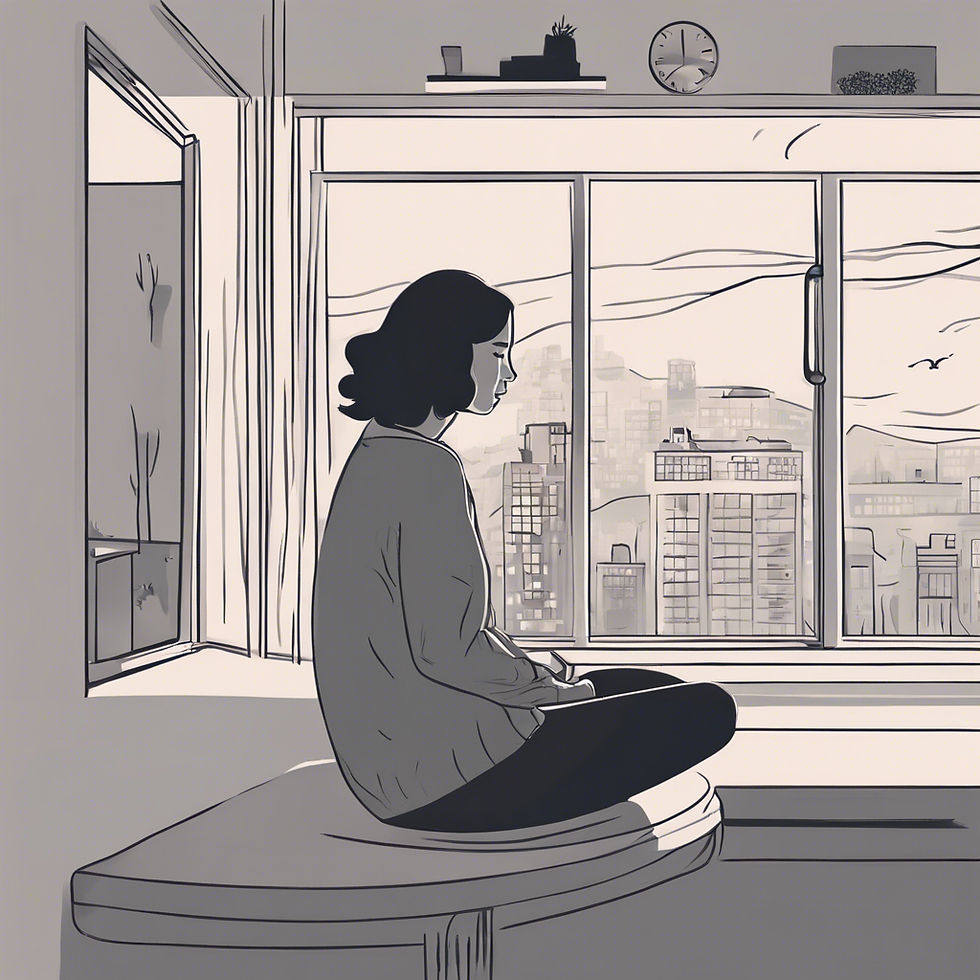13 Key Signs Of Depression: How To Understand Them & Recognize That It's Time To Seek Professional Help!
- TheraCorp Behavioral Health
- Jan 23, 2025
- 3 min read
When is it time to reach out for support? Discover the 13 Key Signs of Depression and learn how to recognize when it’s time to seek professional help. This insightful guide covers symptoms like persistent sadness, sleep changes, physical signs, loss of interest, and more. Recognizing when to seek professional help for depression is a crucial step toward prioritizing your mental health.
Seeking Help Is A Brave Step Toward Healing
13 Key Signs Of Depression:
1. Persistent Sadness or Hopelessness
When feelings of sadness, emptiness, or hopelessness persist for two weeks or more without improvement, it may be a sign of clinical depression. If these emotions begin to dominate your daily life, professional help can offer relief and strategies for recovery.

2. Difficulty Managing Daily Life
Depression can make it challenging to handle everyday responsibilities, such as work, school, or relationships.
If you find yourself withdrawing from activities you once enjoyed or struggling with basic tasks, it may be time to seek help to regain a sense of control.
3. Changes in Sleep or Appetite
Significant changes in sleep (sleeping too much or too little) or appetite (eating too much or too little) can be signs of depression. If these changes are affecting your physical and emotional well-being, it’s essential to consult a mental health professional.
4. Physical Symptoms
Depression often manifests physically through unexplained symptoms like headaches, digestive issues, fatigue, or chronic pain. Seeking help for depression can address both your emotional and physical health when these symptoms coincide with emotional distress.

5. Increased Irritability or Anger
Depression doesn’t always present as sadness; it can show up as irritability, frustration, or anger. If you frequently feel on edge or find yourself lashing out, this may be an indication of underlying depression and the need for professional intervention.
6. Thoughts of Self-Harm or Suicide
If you’re experiencing thoughts of self-harm, suicide, or death, it’s essential to seek help immediately. These are signs of severe depression, and professional support is necessary to ensure your safety and provide needed care.

7. Loss of Interest in Activities
A significant loss of interest in hobbies, socializing, or activities that once brought you joy is common in depression. If nothing feels enjoyable anymore, professional help could be crucial in restoring balance.
8. Struggling to Concentrate
Depression can impair cognitive functions, making it difficult to focus, make decisions, or retain information. If this is affecting your daily functioning, it’s time to consider seeking support for depression.
9. Feelings of Worthlessness or Guilt
Excessive feelings of guilt or worthlessness, especially when disproportionate to reality, can indicate depression. If you’re constantly self-critical or feeling like a burden, a mental health professional can help shift these patterns.
10. Ineffective Coping Strategies
When typical coping methods—like exercise, socializing, or hobbies—no longer seem effective in managing your mood, more structured help may be needed. Therapy can offer new tools and techniques for navigating depression.
11. Substance Use to Cope
If you find yourself turning to alcohol, drugs, or other harmful behaviors to escape emotional pain, this is a clear sign that professional help is warranted. Substance use often exacerbates depression and can lead to further complications.

12. Concern from Others
Friends or family may notice changes in your behavior or mood before you do. If multiple people have expressed concern about your mental health, it’s worth considering professional support, even if you feel uncertain.
13. Recent or Past Trauma
Trauma, whether from a recent event or past experience, can trigger depression. If you’re struggling to process or move past a traumatic event, a mental health professional can offer specialized support to help you heal.
What to Do Next
If you or someone you love are experiencing any of these signs, please consider reaching out for support (732-561-8555 or info@theracorpclinic.com. At TheraCorp Behavioral Health, our licensed therapists are here to diagnose, support, and provide guidance on treatment options, including therapy or medication management.
Remember: Seeking help is a courageous step toward healing and well-being.

We hope that you found this post: "13 Key Signs Of Depression: Help To Understand Them & Recognize That It's Time To Seek Professional Help!" helpful.

For professional counseling tailored to your needs, contact TheraCorp Behavioral Health at 732-561-8555 or email us at info@theracorpclinic.com.
Visit www.theracorpclinic.com to learn more or to schedule an appointment.




















Comments